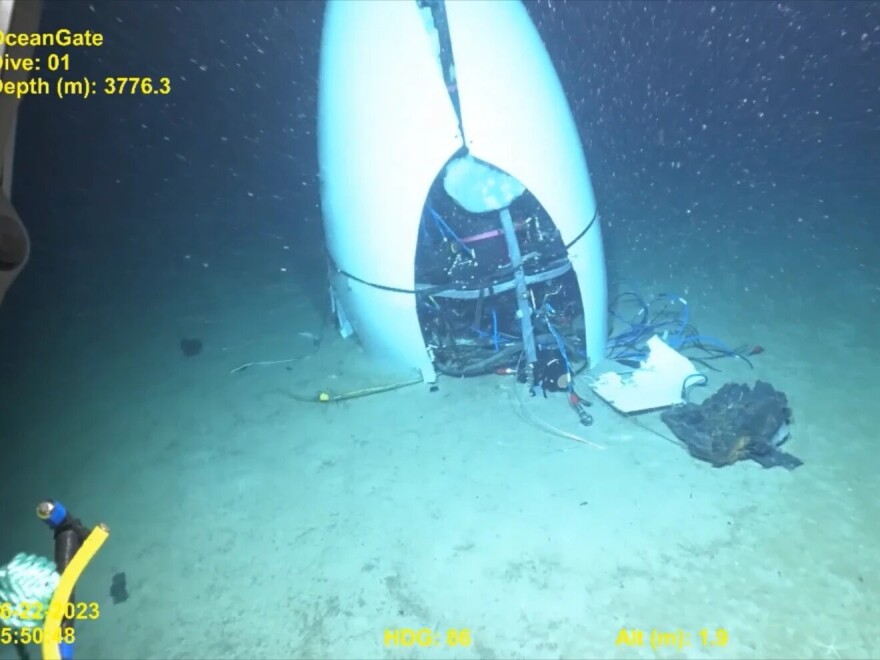Charleston, South Carolina. The U.S. Coast Guard released a damning assessment Tuesday, stating that the tragedy should never have occurred, two years after passengers who were seeking to see the Titanic debris perished in the Titan submarine implosion off the coast of Newfoundland, Canada.
“This marine casualty and the loss of five lives was preventable,” stated Jason Neubauer, the chair of the Titan Marine Board’s investigation. “The two-year investigation has identified multiple contributing factors that led to this tragedy.”
Among these, a 300-page assessment reveals that OceanGate CEO Stockton Rush, who designed and flew the Titan submersible, disregarded safety warnings, circumvented regulations, and demonstrated recklessness.
According to investigators, Rush probably would have been charged with a crime if he had lived. The implosion killed him along with four other passengers.
The submersible’s poor design is another point of contention in the Coast Guard report. For instance, its hull was composed of carbon fiber, which is less expensive, rather than steel alloy, which is more widely used and stronger.
Investigators also discovered a hostile work culture and Titan’s lack of certification, maintenance, and inspections. Once headquartered in Washington, OceanGate has since “wound down operations” and has been assisting with the inquiry, according to a representative for the company on Tuesday.
The Coast Guard’s conclusions are consistent with testimony given by former OceanGate employees at a two-week public hearing held in Charleston, South Carolina, last summer. They said investigators that the business frequently repressed critics and prioritized profits over safety.
David Lochridge, a former OceanGate engineer, claimed to have told Stockton ten years prior that Titan was unsafe. According to his testimony, it was “inevitable something was going to happen, and it was just when.”
Additionally, Lochridge informed investigators that he was let go after voicing his concerns to Stockton.
Another witness, Steven Ross, the former scientific director of OceanGate, remembered a dive on Titan a few days before its last journey. According to his testimony, the submersible’s balance system malfunctioned, causing passengers to be thrown to the back of the ship when it surfaced.
He said that he “ended up standing on the rear bulkhead” and that another traveler was left “hanging upside down.”
Additionally, other witnesses reported hearing “crackling sounds” inside Titan’s hull during multiple dives. However, the missions persisted, with some costing $250,000 each.
After Titan lost touch with its mother ship, personnel searched for survivors on June 18, 2023, while the world watched. Instead, near the Titanic, searchers found the wreckage and the erect tail cone of the Titan. Later, human remains were found.
French explorer Paul-Henri Nargeolet, British adventurer Hamish Harding, and two members of a well-known Pakistani family—Shahzada Dawood and his son Suleman Dawood—were among the four passengers that perished.
The Coast Guard has included safety suggestions in its study that are intended to improve monitoring of the submersible business. The commandant of the Coast Guard will study its findings and determine what should be done.
Copyright 2025 NPR






